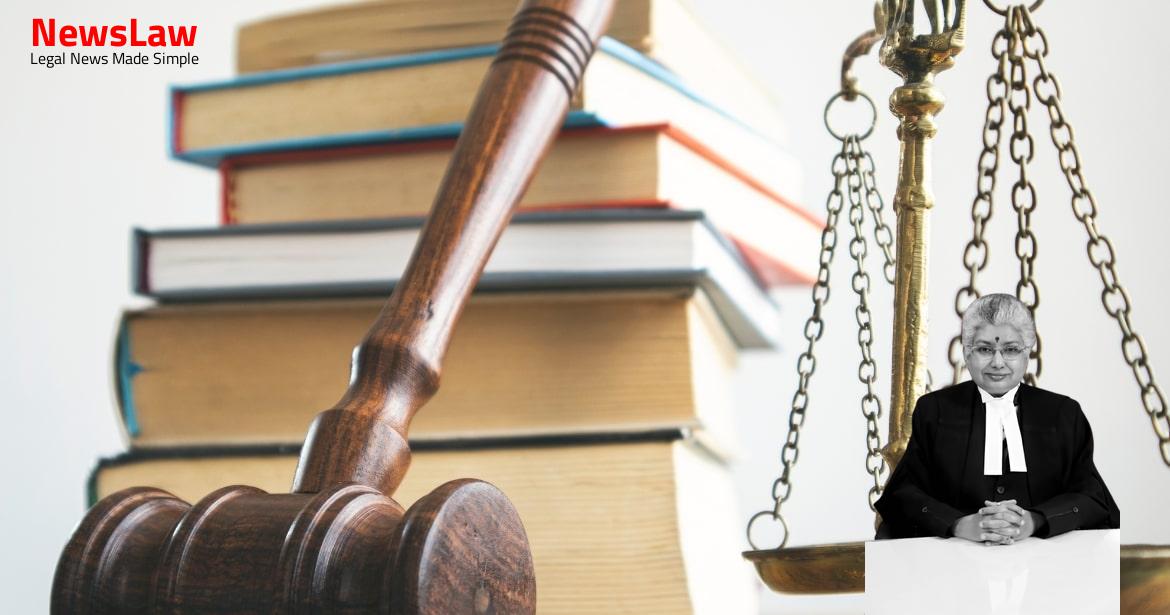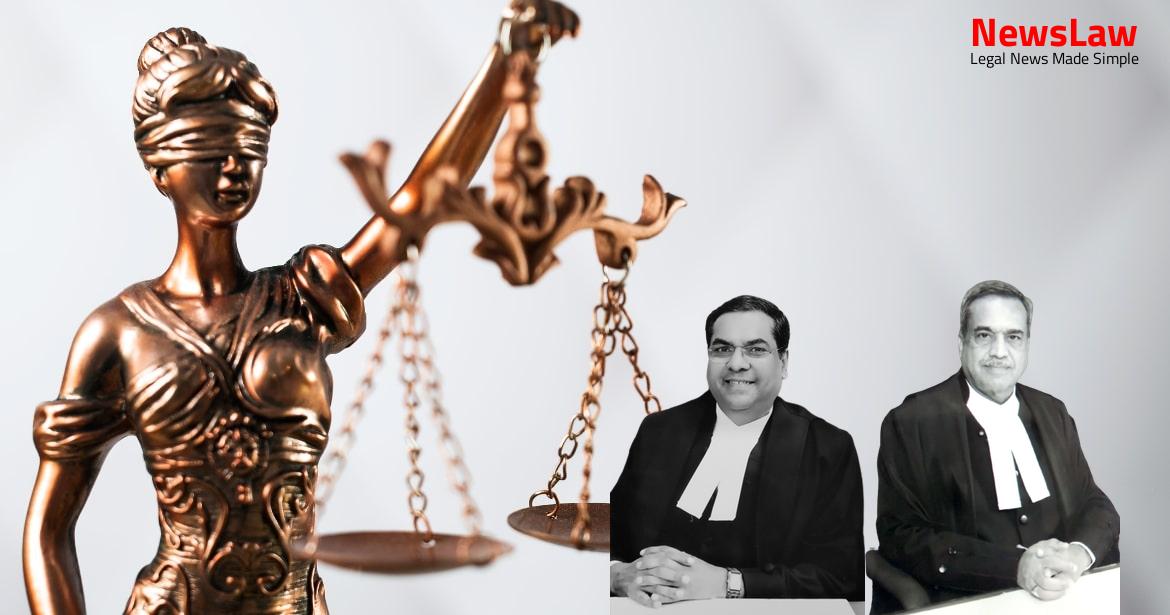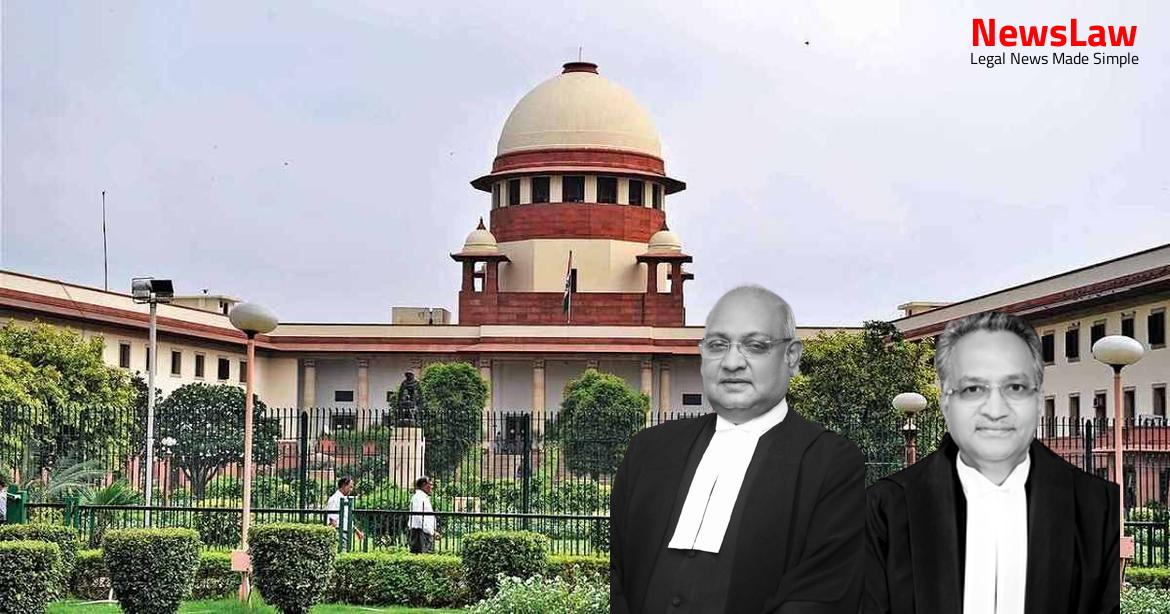Delve into the fascinating world of judicial scrutiny of selection criteria in employment disputes as the court meticulously examines the fairness and legality of the decision-making process. Stay tuned to discover the intricate legal analysis that shapes the outcome of this significant case.
Facts
- Division Bench allowed the appeal, quashed selection of the appellant, and directed consideration of the third respondent within two months
- Court cannot interfere with Selection Committee’s decisions unless bias is proven
- Bye-law No. 10 allows relaxation of conditions at appointing authority’s discretion
- Bye-law lacked clear guidelines for Selection Committee’s discretion
- Criticism of arbitrary marks allocation for experience and interview
- Change in selection criteria after advertisement issuance was deemed unfair
- The Single Judge’s decision in Nagaraj was final, preventing scrutiny of marks in other categories
- The Selection Committee’s rationale for marks allocation based on experience and preference for governmental institution experience
- Challenge of selection criteria for marks allocation in experience and interview by the third respondent in writ appeal
- Issue of changing rules of the game during the selection process highlighted by the Division Bench
- High Court’s rejection of the third respondent’s challenge of alleged arbitrariness in selection list
- Detailed examination of marks allocation for experience and interview by the Division Bench
- The appellant scored 66.77% in the qualifying examination for the Junior Lab Technician post.
- The third respondent scored 76.3% in the qualifying examination but had only six months of experience under a private medical practitioner.
- The third respondent received one mark each in the components of experience and personality/presentation.
- The appellant passed his para medical course in 2002-2003 and had a total of four years of experience in relevant institutions.
- The appellant received the highest marks in the overall assessment and was appointed as Junior Lab Technician in category 1.
- The third respondent challenged the appointment of the appellant through a writ petition in the High Court of Karnataka.
Also Read: Electoral Malpractices in Mayor Election
Arguments
- The Selection Committee has the power to evolve criteria for determining the suitability of candidates among those who fulfill the minimum criteria mentioned in the advertisement
- The Selection Committee resolved to segregate work experience into government and private sectors and decided to give more weightage to those with government sector experience
- The appellant had one year of experience in a private institute and three years and one month of experience in a government medical institution at the time of application
- The rules of the game were alleged to have been changed after the selection process had commenced
- The third respondent had only six months of experience working under a doctor in private practice at the relevant time
- Difference between prescribing a minimum qualification and providing guidelines for identification of suitability of a candidate from the selected pool was highlighted
Also Read: Balancing Power and Transparency: Electoral Bonds Struck Down, Disclosure Mandated
Analysis
- Selection Committee changed the ratio of written and oral marks from 4:1 to 3:1 and introduced a minimum marks requirement for the interview.
- Candidates challenged the changes in ratio and minimum marks requirement after being left out in the second merit list.
- Court does not have the authority to overturn the decision of the Selection Committee.
- The selection list was quashed as the rules of the selection process had changed after initiation.
- Respondent did not challenge the selection list but sought appointment within prescribed criteria.
- The first merit list was prepared by cumulating written examination marks out of 100 and interview marks out of 25.
- Respondent had six months’ experience in private practice at the time of application.
- Committee sent the list back for reconsideration to convert written test marks to eighty-five.
- No glaring error or perversity found in the allocation of marks between the candidates.
- Appellant had more work experience and governmental institution experience than the respondent.
- No malafides imputed to the Selection Committee based on the marks allocated to the candidates.
- Evaluation needed to determine if marks in experience and personality for the appellant were arbitrary.
- Introduction of minimum marks qualification for the interview was also outlined by the committee.
- Rules initially stated selection for eight Group D posts would be based on a written exam of 50 marks.
- Press notice later called successful candidates for an interview worth 50 marks.
- Relying on Bishnu Biswas and Manjusree will not support the case of the third respondent.
Also Read: Recall of Resolution Plan Approval: Legal Analysis
Decision
- The appeal was allowed and the judgment of the High Court of Karnataka dated 31 March 2017 was set aside.
- Any pending applications were disposed of as well.
Case Title: SRI SRINIVAS K GOUDA Vs. KARNATAKA INSTITUTE OF MEDICAL SCIENCES (2021 INSC 639)
Case Number: C.A. No.-006217-006217 / 2021



